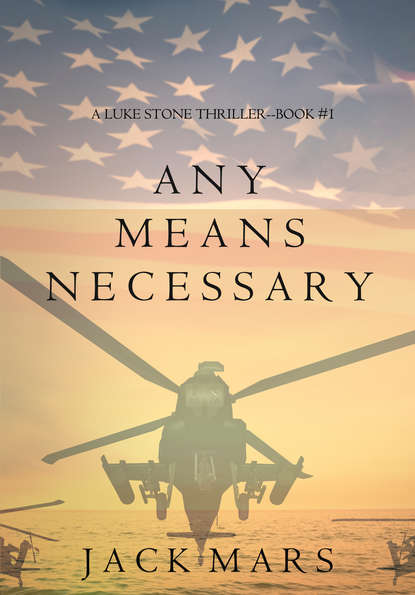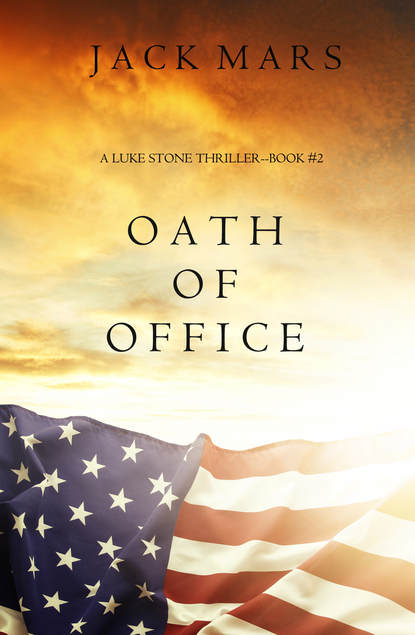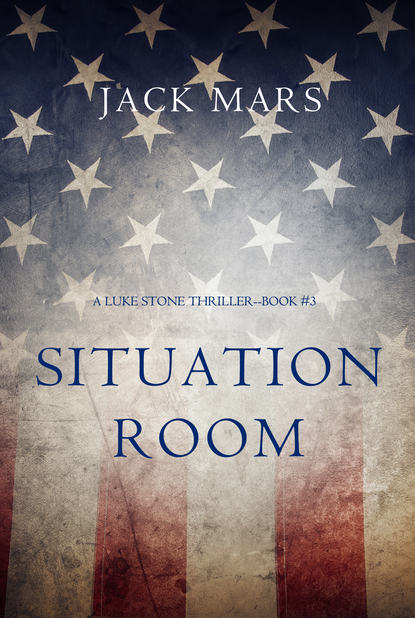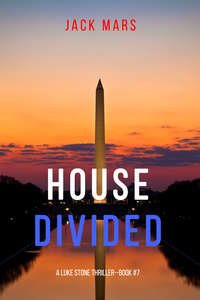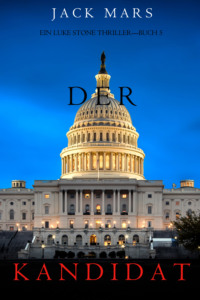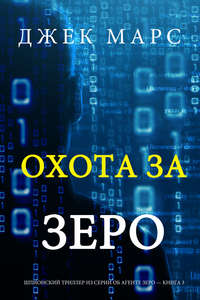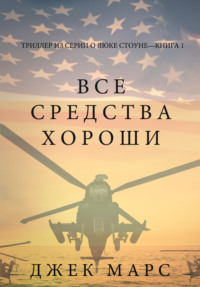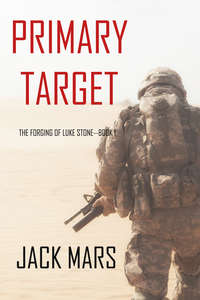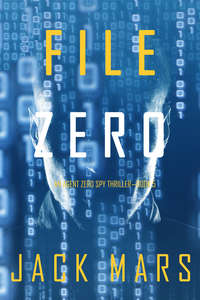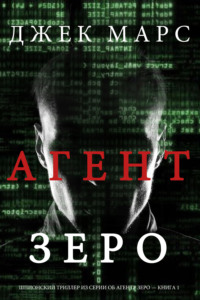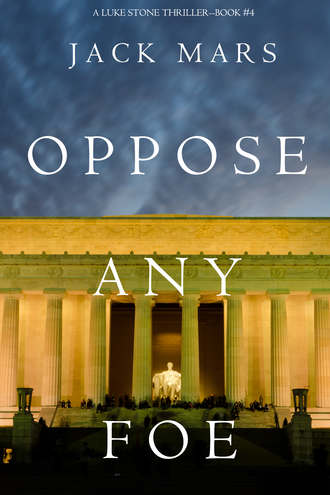
Полная версия
Oppose Any Foe
God, it was nice. But those days were gone.
Becca bustled around, cleaning up, dusting, putting various things away. At one point in the conversation, she took the vacuum cleaner out of the closet and let it rip. She was in a very bad place psychologically. He had tried to hug her when he first arrived, but she had gone wooden, her arms at her sides.
“I was over you, did you know that?” she said now. “I was ready to move on with my life. I even went on a few coffee dates when you had Gunner with you this summer. Why not? I’m still young, right?”
She shook her head bitterly. Luke said nothing. What was there to say?
“Do you want to know something about yourself, Luke? The first one I met, he was a teacher on his summer vacation, nice guy, and he asked me what you do for a living. I told him the truth. Oh, my ex-husband’s some kind of secret assassin for the government. He used to be in Delta Force. You know what happened after that? I’ll tell you. Nothing happened. It was the last I ever heard from him. He heard Delta Force and he disappeared. You frighten people, Luke. That’s my point.”
Luke shrugged. “Why don’t you just tell them I do something else? It’s not like I’m going to – ”
“I did. Once I caught on, I started telling people you’re a lawyer.”
.For a second, Luke wondered what the plural “people” meant. Was she going on dates every day? Two a day? He shook his head. It was none of his business anymore, as long as she was safe. And even that… she was dying. She would never be safe again, and there was nothing he could do about it.
A long paused passed between them.
“Do you want to get a second opinion?”
She nodded. She looked numb, in shock, like the survivors of disasters and atrocities Luke had seen so many times. The amazing thing was that she also looked perfectly healthy. A little thinner than usual, but no one would ever guess that she had cancer. They would probably think she’d been on a diet.
It’s the chemo that makes them look sick. Half the time, it’s also what kills them.
“I’ve already gotten a second opinion from an old colleague of mine. I’m going for a third opinion early next week. If it’s consistent with what I’ve already heard, then by Thursday, I’ll begin the protocols.”
“Is surgery an option?” Luke said.
She shook her head. “It’s too late for that. The cancer is everywhere…” Her voice trailed off. “Everywhere. Chemotherapy is the only option. If I exhaust the approved chemo drugs, then maybe clinical trials, if I’m even still alive.”
She started crying again. She stood in the middle of the living room, abjectly, her face buried in her hands, her body shaking with the sobs. To Luke, she looked just like a little girl. It stung him to see her reduced to this. He had been around death a lot in his life, seen too much of it, but this? It couldn’t be true. He stood, and went to her then. He would comfort her if he could.
She pushed him away, violently, like a child in a playground fight.
“Don’t touch me! Get away from me!” She pointed at him, her face a raging mask of anger. “It’s you!” she shrieked. “You make people sick, don’t you realize that? You steal all the oxygen in the room. You and your superhero garbage.”
She bobbed her head from side to side, mocking him. “Oh, I’m sorry, honey,” she said in a caricature of a low masculine voice. “I’ve got to run off and save the world. No telling if I’ll be alive or dead three days from now. Raise the boy for me, won’t you? Just doing my patriotic duty.”
She was seething. Her voice went back to normal. “You do it because it’s fun, Luke. You do it because you’re irresponsible. You enjoy it. For you, there are no consequences. You don’t care if you live or die anyway, and everybody else has to deal with the fallout and the stress.”
She burst into tears. “I’m done with you. I’m just done.” She waved her hand at him. “I’m sure you can find your own way out of here. So just go. Okay? Go away. Let me die in peace.”
With that, she left the room. A moment of silence passed, and then he heard her down the hall in the master bedroom, sobbing.
He stood there for a long moment, not sure what to do. Gunner would be home in a couple of hours. It wasn’t a good idea to leave him here with Becca, but he didn’t know if he had much choice. She had custody. He had visitation rights. If he took Gunner with him now, without her permission, it was technically kidnapping.
He sighed. When had the legalities of a situation stopped him before?
Luke was at a loss. He felt his energy draining away. And they still hadn’t explained anything about this to the child yet. Maybe he should call Becca’s parents and talk to them. The truth was Becca had handled nearly all the domestic details during their relationship. Maybe she was right about him – he was a lot more comfortable out in the world, playing cops and robbers with very dangerous people. Other people worried about him, he knew, but he didn’t worry. What kind of person lived like that? Maybe one who had never grown up.
On the glass table near the sofa, his telephone began to ring. He glanced at it. As it often did, it seemed almost like it was alive, a viper, dangerous to touch.
He picked it up. “Stone.”
A male voice was on the line.
“Hold for the President of the United States.”
He glanced up, and Becca hovered in the doorway now. Apparently, she had heard his phone ring. She was back again, ready to listen to his conversation and confirm all of her worst feelings about him. For a split second, he felt real hatred for her – she was going to be right about him, no matter what. All the way into her grave, she was going to have him nailed.
Now the voice of Susan Hopkins came on.
“Luke, are you there?”
“Hi, Susan.”
“Long time, no see, Agent Stone. How are you doing?”
“I’m fine,” he said. “You?”
“Good,” she said, but the tone of her voice said something else. “Everything is okay. Listen, I need your help.”
“Susan…” he started.
“It’s a one-day thing, but it’s very important. I need someone who can put it to bed quickly, and with complete discretion.”
“What is it?”
“I can’t talk about this over the telephone,” she said. “Can you come in?”
His shoulders sagged. Ah, man.
“All right.”
“How soon can you be here?”
He glanced at his watch. Gunner would be home in an hour and a half. If he wanted to spend time with his son, the meeting would have to wait. If he went to the meeting…
He sighed.
“I’ll be there as soon as I can.”
“Good. I’ll make sure they bring you straight to me.”
He hung up. He looked at Becca. There was something cruel and mocking inside her eyes. There was a demon in there, dancing on a lake of fire.
“Where are you going, Luke?”
“You know where I’m going.”
“Oh, you’re not going to stay and have a nice time with your son? You’re not going to be a good daddy? That’s a surprise. Gee, I would have thought – ”
“Becca, stop it. Okay? I’m sorry that you’re – ”
“You’re going to lose custody of Gunner, Luke. You go off on missions all the time, right? Well, guess what. I’m going to make you my mission. You’re not even going to see that boy. With my dying breath, I’m going to make it happen. My parents are going to raise him, and you’re not even going to have access to him. You know why?”
Luke headed to the door.
“Good-bye, Becca. Have a nice day.”
“I’ll tell you why, Luke. Because my parents are rich! They love Gunner. And they don’t like you. You think you can outlast my parents in a legal battle, Luke? I don’t think so.”
He was halfway outside, but he stopped and turned around.
“Is this what you want to do with the time you have left?” he said. “Is this who you want to be?”
She stared at him.
“Yes.”
He shook his head.
He didn’t know her anymore, if he ever did.
And with that, he left.
CHAPTER FOUR
11:50 p.m. Eastern European Time (5:50 p.m. Eastern Daylight Time)
Alexandroupoli, Greece
They were thirty miles from the Turkish border. The man checked his watch. Almost midnight.
Soon, soon.
The man’s name was Brown. It was a name that was not a name, for someone who had disappeared a long time ago. Brown was a ghost. He had a thick scar across his left cheek – a bullet that had just missed. He wore a flattop haircut. He was big and strong, and had the sharp features of someone who had spent his entire adult life in special operations.
Once, Brown was known by a different name – his real name. As time passed, his name had changed. At this point, he’d gone by so many names he couldn’t remember them all. This latest one was his favorite: Brown. No first name, no last name. Just Brown. Brown was good enough. It was an evocative name. It reminded him of dead things. Dead leaves in late fall. Dead trees after a nuclear test. Wide open and staring dead brown eyes of the many, many people he’d killed.
Technically, Brown was on the run. He had ended up on the wrong side of history about six months ago, on a job that hadn’t even been explained to him. He’d had to leave his home country in a hurry and go underground. But after a period of uncertainty, he was back on his feet again. And as always, there was plenty of business to do, especially for a man with the kind of bounce-back ability he had.
Now, just before midnight, he stood outside a warehouse in a rundown section of this seafaring town’s port district. The warehouse was surrounded by a high fence topped with razor wire, but the gate was open. A chilly fog rolled in off the Mediterranean Sea.
Two men stood with him, both wearing leather jackets, and both with Uzi submachine guns strapped over their shoulders, and stocks extended. The guys would be nearly identical, except one of them had shaved his head completely bald.
Out on the street, headlights approached.
“Eyes open,” Brown said. “Here come the holy warriors now.”
A small box truck drove up along the deserted boulevard. There was a giant image of oranges along the side of it, with one sliced in half and showing the bright reddish-orange meat of the fruit. There were words on the side of the truck in Greek, probably a company name, but Brown didn’t read Greek.
The truck reached the gate and pulled straight into the yard. One of Brown’s men walked over and slid the gate shut along its track, then locked it with a heavy padlock.
As soon as the truck stopped, two men climbed out of the cab of the truck. The rear door opened, and three more clambered out. The men were dark-skinned, probably Arab, but clean-shaven. Their uniform consisted of blue jeans, light windbreaker jackets, and sneakers.
One man carried a large canvas bag, like a hockey equipment bag, over either shoulder. The weight of the satchels pulled the man’s shoulders down. Three of the men carried Uzis.
We have Uzis, they have Uzis. It’s an Uzi party.
The fourth man, the driver of the truck, was empty-handed. He approached Brown. His eyes were blue, and his skin was very dark. His hair was jet black. The combination of blue eyes and dark skin gave his face an odd effect, as if he wasn’t quite real.
The two men shook hands.
“Jamal,” Brown said. “I thought I told you to come with only three men.”
Jamal shrugged. “I needed one to carry the money. And I don’t count toward the total, right? So I did bring three. Three gunmen.”
Brown shook his head and smiled. It hardly mattered how many people Jamal brought. The two men with Brown could kill a busload of gunmen.
“Okay, let’s go,” Brown said. “The trucks are inside.”
One of Brown’s men – he called himself Mr. Jones – pulled an automatic opener from his pocket, and the garage door of the warehouse slowly rattled open. The eight men walked into the cavernous space. The warehouse was mostly empty, except for heavy green tarps thrown over two giant vehicles. Brown walked to the closest one and yanked the tarp halfway off.
“Voila!” he said. What he revealed was the front half of a large tractor-trailer, painted in green, brown, and tan camouflage colors. Jones yanked the tarp off near the rear of the truck, revealing a flat, four-cylinder missile launch platform. The two parts of the truck were separate and independent of each other, but were attached by hydraulics in the middle.
The trucks were called transporter-erector-launchers, or TELs, relics of the Cold War, mobile attack stations that NATO had used to target the old Soviet Union. The launchers fired smaller variants of the Tomahawk cruise missile, and the missiles could be outfitted with small thermonuclear warheads. These weapons were for a limited tactical nuclear strike – the kind that would take out a medium-sized city, or totally destroy a military base and its surrounding countryside, but maybe not bring about the apocalypse. Of course, once you started launching nukes at people, all bets were off.
In the old days, they called this missile system the “Gryphon,” after the ancient mythical creature with the legs and body of a lion, and the wings, head, and talons of an eagle – the protector of the divine. Brown got a kick out of that.
The system was decommissioned in 1991, and all of these units were supposed to have been destroyed. But there were still a few of them in existence. There were always weapons floating around somewhere. Brown had never heard of a missile class or a weapons system that had been entirely dismantled – there was too much money to be made misplacing them and having them turn up later. Retail stores called it “shrinkage.” Walmart and Home Depot experienced it. So did the military.
In fact, here were two of the mobile platforms, just parked in a warehouse in a Greek port city all this time, very close to Turkey, and less than a mile from the docks. Sitting snug inside each of the launch cylinders was a Tomahawk missile, each one operational, or likely to become operational with a little tender loving care.
Why, it was almost as if you could drive these trucks out of here and right onto a freighter or a ferry, then sail away for parts unknown. They were conventional weapons, certainly, but surely there were still nuclear warheads somewhere that would fit these missiles.
Then again, obtaining warheads wasn’t Brown’s department. That was Jamal’s problem. He was a capable guy, and Brown imagined he already knew where he might find some loose nukes. Brown wasn’t sure how he felt about that. Jamal was playing a dangerous game.
“It’s beautiful,” Jamal said.
“God is great,” said one of his men.
Brown winced. As a rule, he frowned on religious talk. And beautiful was a relative term. These trucks were two of the ugliest war machines Brown had ever seen. But they would pack a wallop – that much was certain.
“You like?” Brown said to Jamal.
Jamal nodded. “Very much.
“Then let’s see the money.”
The man with the heavy satchels came forward. He dropped them from his shoulders and onto the stone floor of the warehouse. He knelt and unzipped them, each in turn.
“A million dollars in cash in each bag,” Jamal said.
Brown gestured with his head to his other man, the bald one.
“Mr. Clean, check it.”
Clean knelt by the bags. He pulled random rubber-banded stacks of money from various sections of each bag. He took a small, flat digital scanner from his pocket and began to remove bills from each stack. He turned on the scanner’s UV LED light and placed the bills on the scanner window one at a time, revealing the UV security strip on each bill. Then he ran a light pen over each bill, revealing the hidden watermarks. It was a cumbersome process.
As Clean worked, Brown slipped a hand inside his jacket, touching his gun there. He made eye contact his man Jones, who nodded. If something funny was coming, it would happen now. The body language of the Arabs didn’t change – they just looked on impassively. Brown took that as a good sign. They were really here to buy the trucks.
Mr. Clean dropped a stack of money on the floor. “Good.” He picked up another stack, began riffling through it, checking bills with the device. Time crawled by.
“Good.” He dropped that stack and picked up another one. More time passed.
“Good.” He kept going.
After a while, it started to grow boring. The money was real. In ten minutes or so, Brown turned to Jamal.
“Okay, I believe you. That’s two million.”
Jamal shrugged. He opened his jacket and pulled out a large velvet purse. “Two million in cash, two million in diamonds, as we agreed.”
“Clean,” Brown said.
Mr. Clean stood and took the purse from Jamal. Clean was the money and valuables expert on this little team. He pulled a different electronic device from his pocket – a small black square with a needle tip. The device had lights on the side, and Brown knew it tested the heat dispersal and electrical conductivity of the stones.
Clean began to take stones one at a time from the bag and gently press the needle tip to them. Each time he did one, a warm tone would sound. He had done about a dozen before Brown said another word to him.
“Clean?”
Clean looked at Brown. He grinned.
“They’re good so far,” he said. “All diamonds.”
He tested another one. Then another.
Another.
Brown turned to Jamal, who was already gesturing to his men to pull the tarps and board the trucks.
“It was a pleasure doing business with you, Jamal.”
Jamal barely glanced at him. “Likewise.” He was preoccupied with his men, and the trucks. The next part of their journey had already begun. Getting two mobile nuclear missile launch platforms with missiles included to the Middle East was probably not an easy proposition.
Brown raised a finger. “Hey, Jamal!”
The thin man turned back to him. He made an impatient hand gesture, as if to say, “What?”
“If you get caught with those things…”
Now Jamal did smile. “I know. You and I never met.” He backed away toward the nearest of the two trucks.
Brown turned to Mr. Jones and Mr. Clean. Jones was on one knee, stuffing the money back into the heavy bag. Clean was still testing diamonds from the velvet bag, handling them one at a time, the needle device still in his hand.
They had made one whale of a score. Things were looking up finally, after the fiasco that had run Brown out of his own country. He smiled.
All in a day’s work.
And yet, something about the scene here disturbed Brown. His guys were not paying attention to their environment – they were distracted by all the money. They had let their guard down, badly. And so had he. On a different operation, that could come back to bite them. Not everyone was as trustworthy as Jamal.
He turned to look at the Arabs again.
Jamal was there, near the truck, holding one of the Uzis. Two of his guys were with him. They stood in a line, pointing their guns at Brown and his men.
Jamal smiled.
“Clean!” Brown shouted.
Jamal fired, and his men did the same. There came the ugly blat of automatic gunfire. To Brown, it seemed like they were almost spraying him with a fire hose. He felt the bullets piercing him, biting into him like stinging bees. His body did an involuntary dance, and he struggled against it, to no avail. It was almost as if the bullets were holding him up, pinning him in an upright position, making him jitter and jive.
For a moment, he lost consciousness. Everything went black. Then he was lying on his back, on the concrete floor of the warehouse. He could feel the blood flowing from him. He could feel that the floor was wet where he lay. A puddle was spreading around him. He was in a lot of pain.
He glanced over at Mr. Clean and Mr. Jones. They were both dead, their bodies riddled, their heads half gone. Only Brown was still alive.
It occurred to him that he had always been a survivor. Hell, he had always been a winner. There was no way, after more than two decades of combat, madcap adventures, and narrow escapes, that he was going to die now, like this. It was impossible. He was too good at his job. So many men had tried to kill him before now, and failed. His life wouldn’t end like this. It couldn’t.
He tried to reach inside his jacket for his gun, but his arm didn’t seem work right. Then he noticed something else. Despite all the pain, he couldn’t feel his legs.
He could feel the burning in his gut where he had been shot. He could feel the ringing pain in his head where he had smacked it on the stone floor when he fell down. He swallowed, then lifted his head and stared down at his feet. Everything was still down there and still attached – he just couldn’t feel any of it.
The bullets severed my spine.
No thought had ever caused him such horror. Valuable seconds passed as he saw his future – rolling in a wheelchair, trying to climb from the chair to the driver’s seat of his handicapped accessible car, emptying the colostomy bag that drained the shit from his useless digestive system.
No. He shook his head. There was no time for that. There was only time for action. Clean’s gun was above his head and behind him somewhere. He reached back there – it hurt just to raise his arms like that – but he couldn’t find it. He started crawling backwards, dragging his legs after him.
Something caught his eye. He looked up and here came Jamal, swaggering toward him. The bastard was grinning.
As he approached he raised his gun. He pointed it at Brown. Now Brown noticed Jamal’s two men were with him.
“Don’t try to do anything, Brown. Just lay still.”
Jamal’s men took the big heavy bag with the money, and the small purse with the diamonds. Then they turned and headed back to the trucks. They climbed into the cab of the lead truck. The headlights came on. The engine farted and belched, black smoke pouring from a stack on the driver’s side.
“I like you,” Jamal said. “But business is business, you know? We’re not leaving any loose ends on this one. Sorry about that. I really am.”
Brown tried to say something, but he didn’t seem to have his voice. All he could do was gurgle in response.
Jamal raised the gun again.
“Do you want a moment to pray?”
Brown nearly laughed. He shook his head. “You know something, Jamal? You crack me up. You and your religion are a joke. Do I want to pray? Pray to what? There is no God, and you’ll find that out as soon as you – ”
Brown saw fire lick the end of the gun’s barrel. Then he was flat on his back, staring up at the ceiling of the warehouse high above his head.
CHAPTER FIVE
9:45 p.m. Mountain Daylight Time (11:45 p.m. Eastern Daylight Time)
Florence ADX Federal Penitentiary (Supermax) – Florence, Colorado
“This is it,” the guard said. “Home sweet home.”
Luke walked the white cinderblock hallways of the most secure prison in the United States. The two tall, heavyset guards in brown uniforms flanked him. They were nearly identical, these guards, with military recruit-style crew cuts, big shoulders and arms, and even bigger midsections. They moved along, their bodies stiff and top-heavy, like offensive linemen from a football team who had been out of the sport for a while.
They were not fit in any traditional sense of that word, but Luke mused that they were the perfect size and shape for their jobs. In close quarters, they could put a lot of weight on a resistant prisoner.
Footfalls echoed on the stone floor as the three men passed the closed, windowless steel doors of dozens of cells. Each cell door had a narrow opening near the bottom, like a mail slot, through which the guards could shove meals to the prisoners. Each also had two small windows with steel-reinforced glass facing the walkway. Luke didn’t glance into any of the windows they passed.
Somewhere on this hallway, a man was screaming. It sounded like agony. It went on and on, no sign of ending. It was night, soon it would be lights out, and a man was shrieking. Luke thought he could almost make out words embedded in the sound.
He glanced at one of the guards.
“He’s okay,” the guard said. “Really. He’s not in any pain. He just howls like that.”
The other guard chimed in. “The solitude drives some of them insane.”
“Solitude?” Luke said. “You mean isolation?”


